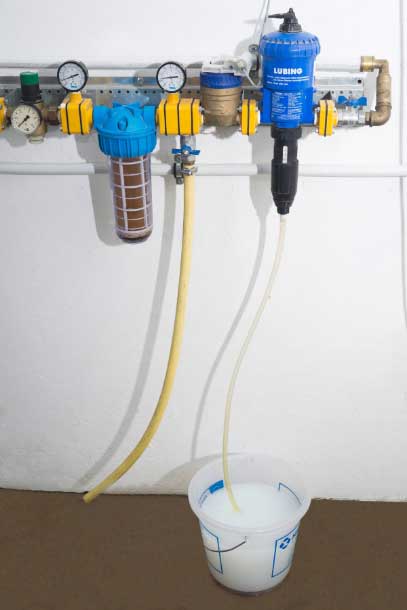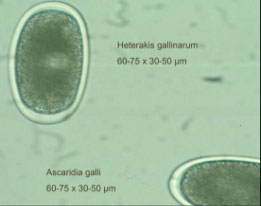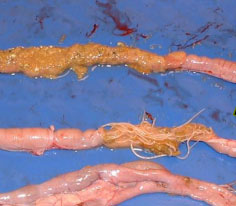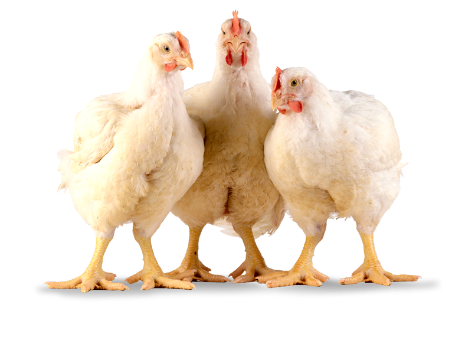
COMBAT POULTRY PARASITES
Tips on minimizing impact
Preventative measures such as cleaning, disinfecting and changing litter/soil between flocks are helpful for reducing worm outbreaks. Nevertheless, for many situations, the administration of anthelmintic medication in drinking water or via feed is necessary to control parasite burdens. Thus, anthelmintic treatment of chickens has become a common practice for managing the health and economic threats posed by nematode parasites.
Info on production practices
Modern rearing practices characterized by improvements in housing, hygiene and management have greatly reduced the exposure of commercial flocks to nematode parasites and their intermediate carriers, resulting in significant reductions in the incidence and scope of parasitic diseases. Heavy, unmitigated parasitism can negatively affect weight and flock uniformity, and producers that fail to control parasites in their flocks will often suffer production drops and sacrifice profit potential. Poor flock uniformity especially affects layer and breeder operations since layers that do not reach weight targets often do not achieve persistent egg production.

Tips and tricks for screening
Parasitic nematodes in chickens can be detected by:
- Examining feces samples under a microscope to detect worm eggs.
- Direct examination of intestinal contents for adult stages of worms.
If you are screening for Capillaria spp. it is best to do a post mortem examination using a worm screen which capture these very small hair like worms. Ultimately, the method used will be determined by which species of worm is being screened and sensitivity of the test. Your consulting veterinarian is trained and equiped to perform the proper test for your situation.

Photo courtesy of Anders Permin DVM, PhD

Photo courtesy of Anders Permin DVM, PhD
Methods of Treatment
Two principle methods of deworming poultry are available to poultry farmers—water and feed administration. These treatment methods generally utilize pharmaceutical compounds which are approved for quality, safety and efficacy by national authorities. The approved veterinary medicinal products vary by country. Several factors need to be considered when selecting a dewormer for poultry: Ease of use, efficacy, safety among other things. Many producers realize better efficacy in the deworming program by using a water soluble product because the product can be administered at the exact timing desired—no waiting for feed bins to become empty or for concern of cross clearances with other ingredients in the feed formula.
Effectiveness of Treatment
Strategic deworming of poultry exposed to worms is proven to be the most effective method to control internal parasite infections in poultry with free access to out-door areas or deep-litter systems. The effect of treatment will be considerably prolonged if the dewormer has an ovicidal effect. Proper diagnosis, followed by strategic dewormer treatments will gradually reduces the infestation pressure to a low level that is manageable.

Ready for a simple, effective treatment that treats the entire flock? Contact your vet today and ask about Panacur® AquaSol.
Contact Us
Want more info about cost-effective, convenient options for treating worms in poultry? Fill out the form below and an MSD Animal Health specialist will get in touch with you to speak about parasitism in chickens.

